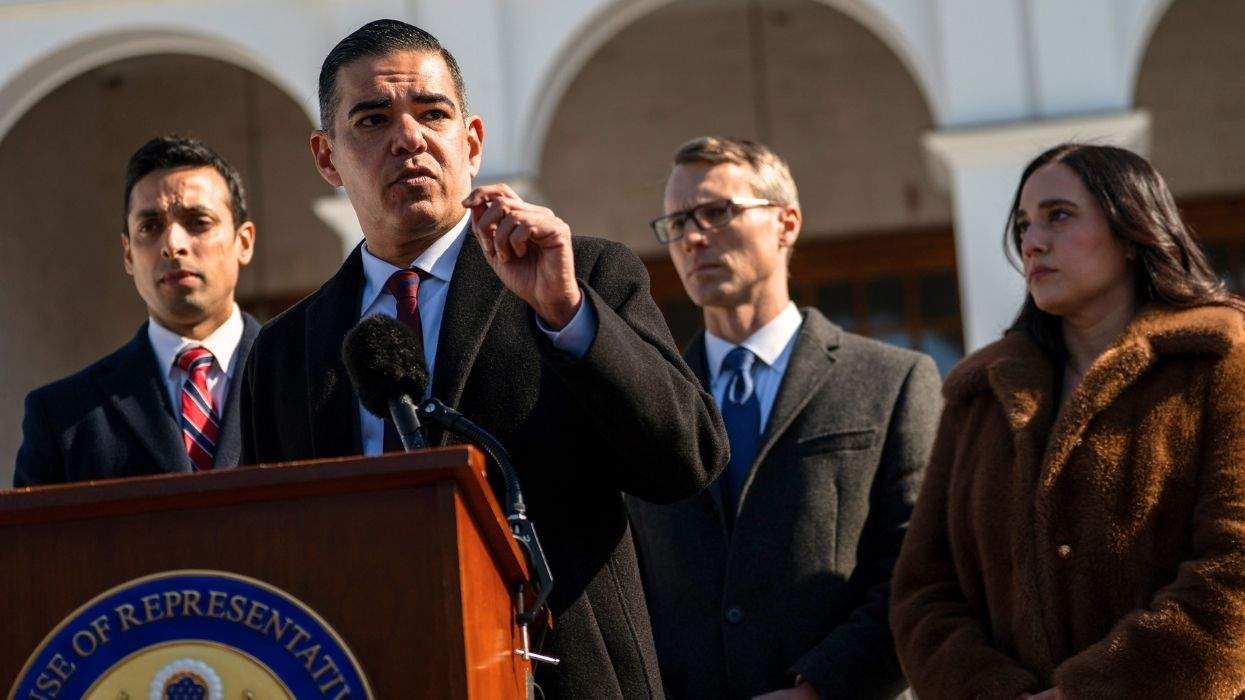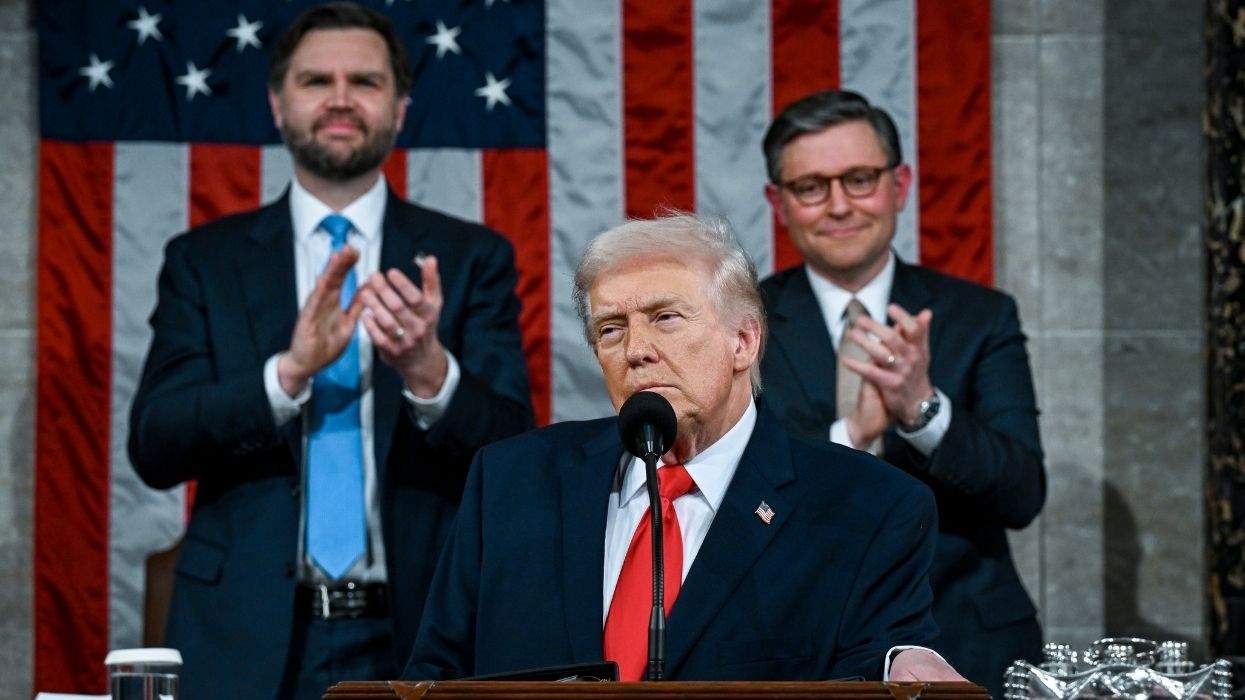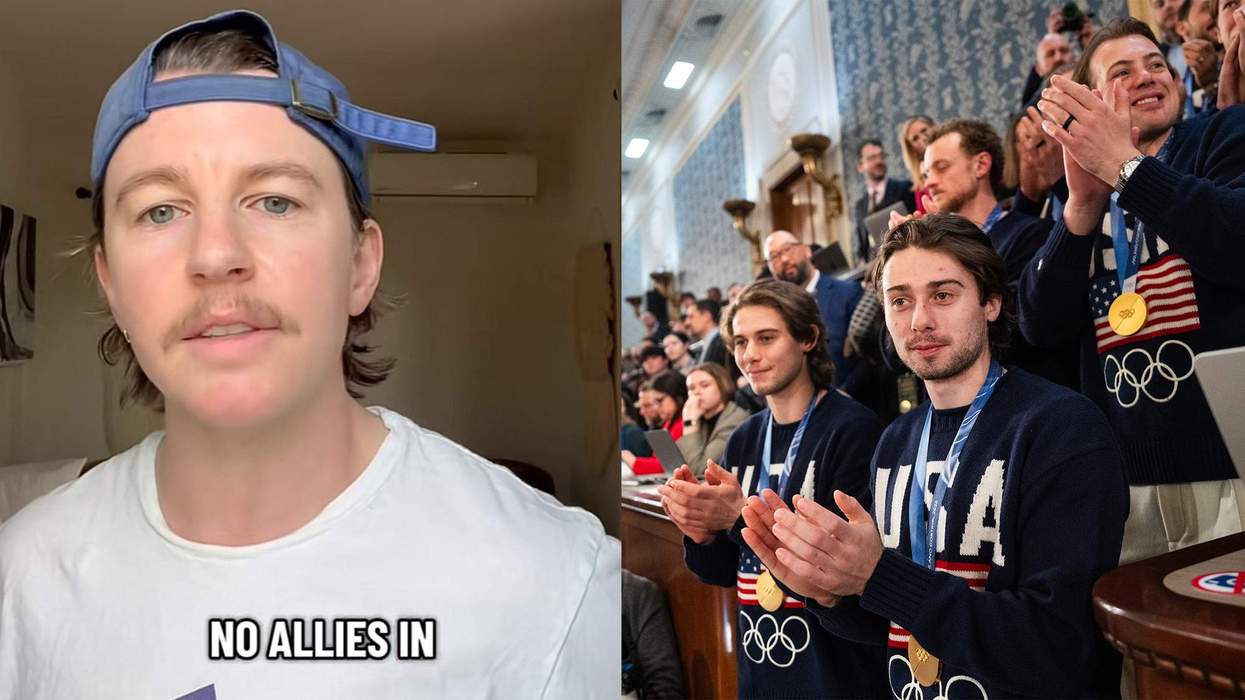In 2006 the world became very unsafe for closeted gay public figures. Sure, they could still try to suppress rumors--and there were plenty of denials, cover-ups, and couch-jumping displays of heterosexuality to go around--but 2006 was the year closet-case celebs were put on notice: Proceed at your own risk.
Whether you're a member of Congress, a television star, or a preacher on the evangelical right, at any minute someone might reveal the truth about you, and the news will sweep around the globe almost instantaneously. What began with the outing wars back in the early 1990s--when I and other gay journalists began reporting on closeted public figures in a small, feisty New York weekly called OutWeek, causing an uproar while challenging the rest of the media to normalize the discussion of homosexuality--is finally coming to fruition in the age of 100 million blogs.
Not only do the whistle-blowers of today have the ability to get the message out far and wide, with the Internet and talk radio now surpassing traditional media as the gatekeepers of such information, but there's little public outrage over outing these days, whether that's because people think it's futile to protest or they just agree that homosexuality shouldn't be a dirty little secret. The traditional media now often join in, perhaps realizing they're losing ground.
Take the case of Ted Haggard, the influential evangelical leader who came crashing down in his own gay sex scandal in November. It was a news program on a Denver television station--an NBC affiliate--that outed Haggard as gay, based on one source, the ex-hustler Mike Jones.
Ten years ago people like me were vilified for reporting on public figures in that way, even when we had more sourcing. But coming on the heels of the Mark Foley scandal in September and the media's skirting of the Republican congressman's repressed sexuality for years--a repressed sexuality that quite likely led him to engage in reckless behavior, preying on teenagers in his sphere of influence--reporters appear to have realized they'd be lax if they didn't "go there." The Foley scandal was indeed a wake-up call. And perhaps that's why not one editor, reporter, or any of the usual crowd of gay conservatives and the like, as far as I can tell, criticized the outing of Ted Haggard as an "invasion of privacy." In 2006, particularly with regard to someone who'd railed (or, in the case of Foley, voted) against gays, they'd lost that argument.
Similarly, in the world of entertainment and pop culture it became more difficult during the year to stay in the closet than to just come out.
In July, Lance Bass, the former 'N Sync heartthrob, after being badgered on the gay gossip sites--with the acid-tongued gay gossip blogger Perez Hilton leading the charge--came out, stating he was "liberated and happy," perhaps preferring the gay spotlight to the constant barbs.
Ditto TV actor Neil Patrick Harris, whose publicist initially denied an October report on Canada.com insinuating the actor was gay. (The Web site reported that he'd given his "longtime sweetheart," David Burtka, a role on his CBS TV show, How I Met Your Mother.) Harris quickly seemed to realize that cover-up was not the way to go, and in an about-face told People magazine that he was indeed a "content gay man." The same was true of Grey's Anatomy's T.R. Knight, who must have guessed that stories that appeared in October regarding homophobia on the set of that popular TV show would focus attention on his closet. So he came out.
Let's not forget that the main reason many celebrities have remained closeted is pressure to do so for fear of career reprisals. Now the pressure to come out--for fear of reprisals for appearing dishonest--is becoming greater.
Even Rosie O'Donnell, who remained circumspect about her sexuality in the '90s, acknowledged as much on The View, noting that with all of the gossip sites today it's difficult for anyone to stay closeted. It appears it's also hard for any celebrity to stay closeted while an out and proud lesbian is on The View: In a seemingly valiant attempt to protect Clay Aiken from what she perceived as a homophobic remark from Kelly Ripa, Rosie opined in November that if Aiken "were a straight man," Ripa wouldn't have made the comment.
That surely wasn't what Aiken, who refuses to address his sexuality, wanted to hear, just as Ken Mehlman, the former Republican National Committee chair, surely didn't want to hear Bill Maher claim Mehlman was gay on Larry King Live in November. (Mehlman, who also has refused to address his sexual orientation, may even have been influential in CNN's decision to censor the line from the West Coast broadcast.) But that, everyone seems to be saying, is their problem, not ours. In 2006 the rules changed.















